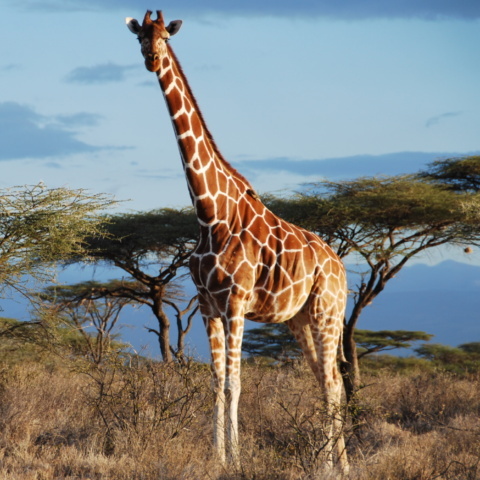
Our research group compares and analyzes the genomes of vertebrates to get a better understanding of their evolution. We focus on mammals. Mammals are particularly suitable for such research because many mammal genomes are already available and new ones are being sequenced constantly. In previous studies we have looked into the genomes of giraffe, whale and bear species as well as crocodile and marsupial species.
To address our primary research question we analyze relationships between species and (re)build phylogenetic trees based on genomes. In doing this we reconstruct gene flow between species. Our research in this field has shown that there are more giraffe species that were previously acknowledged and basic research results can be relevant for conservation efforts. Furthermore our studies show that the evolution of mammals has been a lot more complex than previously thought, probably including hybridization. To visualize this process, we use multi-dimensional networks.
Next to this, our research group looks into the question how environmental processes shape the evolution of genomes, and consequently organisms. Most arctic vertebrates diverged from southern species during the Pleistocene or Holocene, i.e. they have adapted to arctic conditions over relatively short time frames. Therefore they are an ideal taxonomic group to study genomic effects of climate changes. To investigate the genomic effects and signatures of adaptation to life in the arctic, we use modern (”next-generation”) genomic techniques.
In order to study long-scale changes in biodiversity and their correlation with environmental changes, we also make use of bioinformatics tools. We develop or adapt them to our questions in order to analyze mammalian genome sequences. When necessary we will produce new sequence data to test hypothesis testing and complement existing data.
Links
Selected publications
Arnason, U., Lammers, F., Kumar, V., Nilsson, M.A. Janke A (2018) Whole-genome sequencing of the blue whale and other rorquals finds signatures for introgressive gene flow. Science Advances, doi: 10.1126/sciadv.aap9873
Kumar, V., Lammers, F., Bidon, T., Pfenninger, M., Kolter, L., Nilsson, M.A. and Janke, A. (2017) The evolutionary history of bears is characterized by gene flow across species. Scientific Reports, doi: 10.1038/srep46487
Fennessy, J., Bidon, T., Reuss, F., Kumar, V., Elkan, P., Nilsson, M.A., Vamberger, M., Fritz, U. and Janke, A. (2016) Multi-locus analyses reveal four giraffe species instead of one. Current Biology, doi: 10.1016/j.cub.2016.07.036

